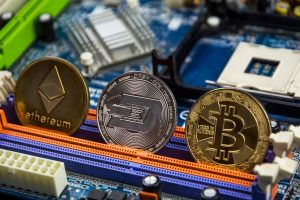Decentralized Blockchain technology is revolutionizing the crypto industry and it is proving to hold great promise for individuals and businesses alike.
For the future of the financial industry, blockchain technology will be a game-changer. The concept of blockchain extends beyond digital assets such as cryptocurrency and trading platforms. The decentralized blockchain technology allows people to exchange and trade without relying on any central authority. Decentralized blockchain technology enables users to use crypto exchange anything from music to movies to currency to votes and more.
What exactly are digital assets?
The term “digital assets” refers to a variety of items, such as
- Money
- Intellectual property
- Art
- Film
- Music
- Stocks
- Coupons
Solving Problems of Traditional Platforms
There are numerous issues associated with the transfer of digital assets with top crypto exchange platforms. One of the problems is double-spending, the possibility of a digital currency being spent twice. We now rely on a centralized structure in place through which the government, banks, and other agencies can build trust and verify that there is no fraud or illegal wealth transfer. Decentralized blockchain, a method developed by Satoshi Nakamoto in 2008, challenges these middlemen by allowing people to collaborate directly while transferring money and digital assets. This blockchain technology eliminates the need for any government, bank, or other authority to intervene during a transaction.
Features of Decentralized Networks
If this system takes hold, future businesses will be entirely run on a decentralized network that feature
1. Smart-Contracts
A smart contract is a digital agreement in blockchain that is kept within a blockchain. A smart contract holds the money until an objective is met. There is no central entity in control of your money using smart contracts, and it is immutable and cannot be changed, offering a high level of security and no risks to the safety of your data.
- 2.Robust Encryption
Encryption is a procedure that ensures the data you provide online is fully secure. Blockchain records all data on a digital base and stores it in blocks. Once a transaction is added to the blockchain, it can never be changed, making the decentralized system impossible to be hacked and the information altered.
3. Peer-to-Peer Network
When all data is held in a centralized system by a single central authority, hackers can get all information by hacking just one server. The blockchain P2P network has no central database, and all network information is continuously recorded and shared from peer to peer interactions.
Unlike centralized systems, the decentralized approach enhances security and makes it impossible to alter or lose previous records.
4. Digital Identity
To ensure that someone is not being falsely represented by someone else, blockchain employs digital identification. There would be a mechanism put in place to confirm someone’s identity in all business processes. Therefore, eliminating risks of fraud and stolen identities.
For a fast-moving world, the centralized system is extremely slow. A bank takes days or weeks to transfer data from one country to another, and it charges a large sum of money to do so, while decentralized blockchain technology is significantly faster and has a greater impact on the economy. Ensuring secure transactions controlled completely by the user themselves.blockchain technology

nice information about the digital currency before it I never ever read. keep it up dear
Your content quality is satisfying and revealing that you have good grip on your knowledge about the future of decentralized Blockchain. Keep it up good luck